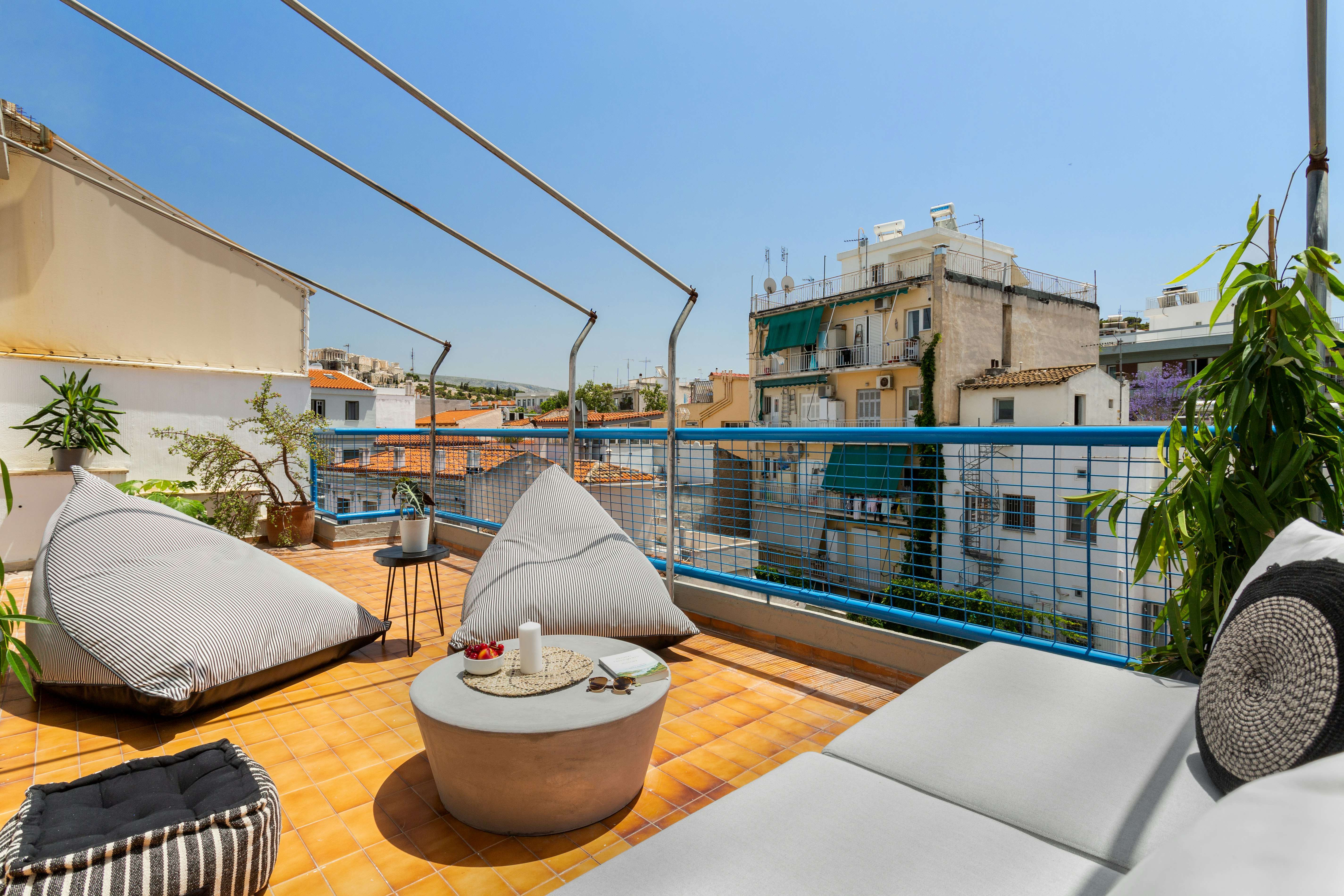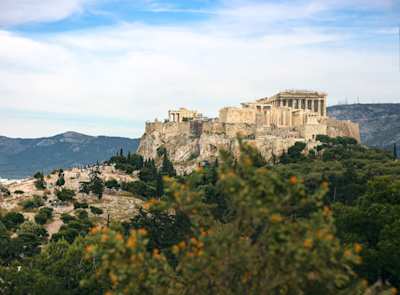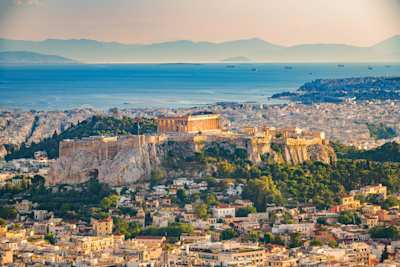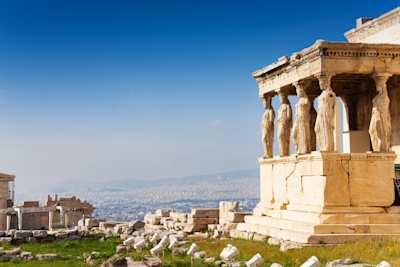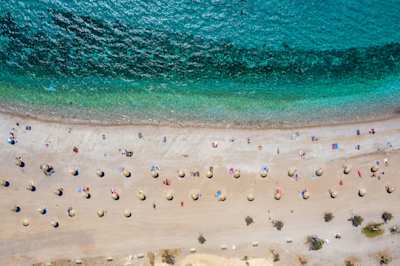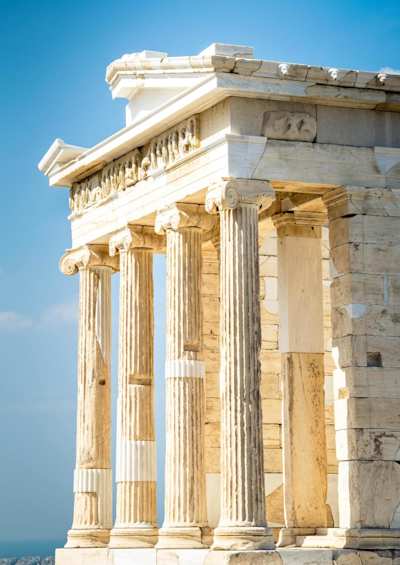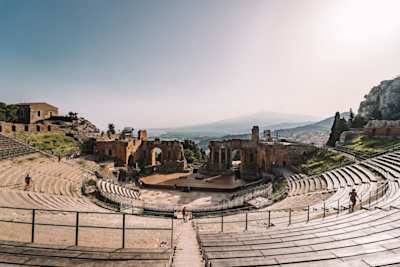Athens Travel Guide: Discover the Greek Capital
Make the most of the famous city
~
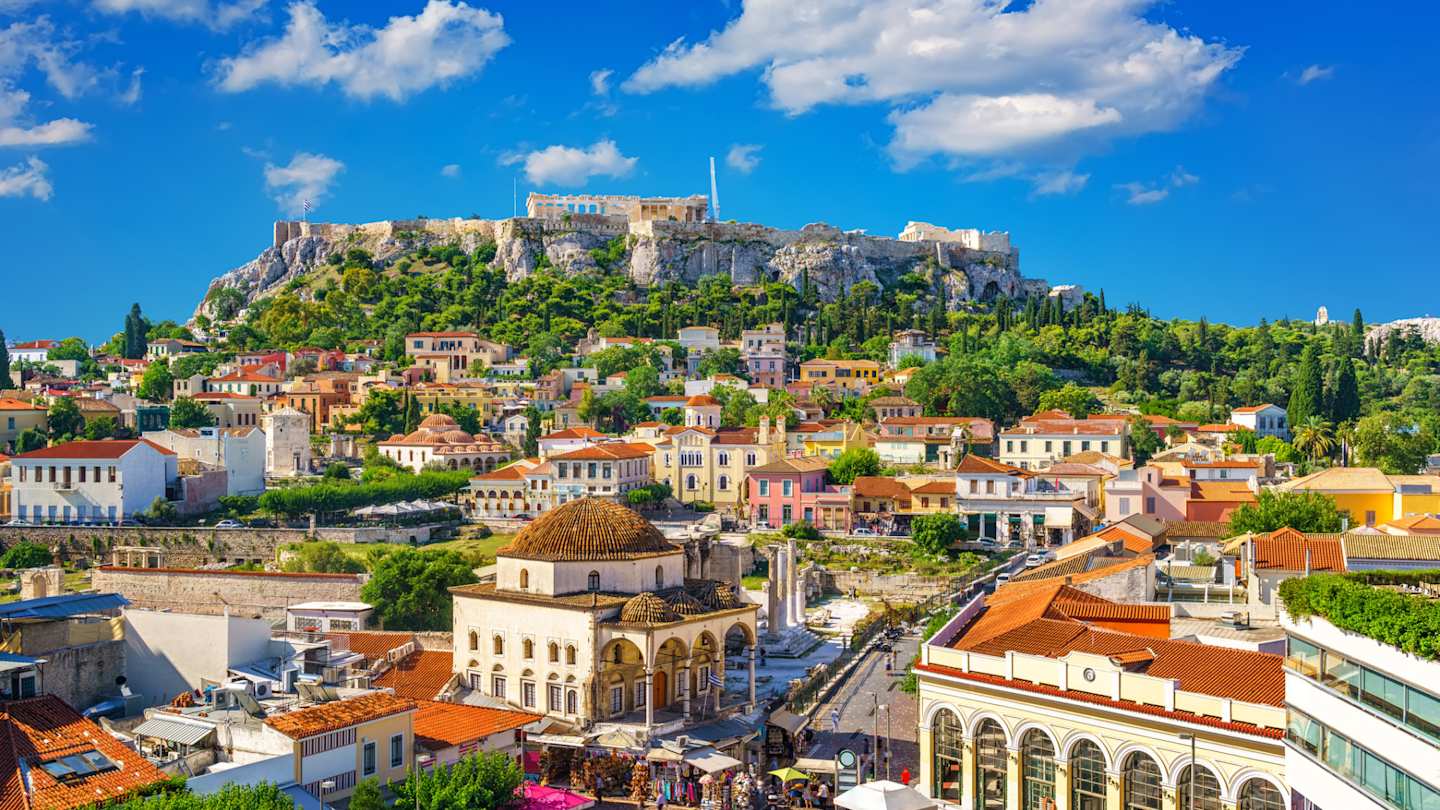
The capital of Greece is so much more than just a pit stop on your way to somewhere else, which is often its fate. This sprawling city, while famous for its historical sites, has a slight reputation as somewhere that isn’t worth your time to visit. We here at Plum Guide know better, however. As travel experts, we would never recommend a genuinely missable city - so the fact that we're dedicating a whole article to Athens says it all. Europe’s classical capital has undergone a hip revival in recent years, attracting swathes artists and creatives. The vibe is one of an ancient city finding a new lease of life, with a fascinatingly intense energy. And of course, it is very well connected, with ferries leaving Athens to all the islands of the Aegean Sea and then some. Read on for our expert Athens travel guide.
Where to stay

A charming white cottage with plants and a cat on the window ledge, Anafiotika, Athens, Greece
Athens is deceptively large, and can feel a little overwhelming for a first time visitor. It’s a good idea to stay in a neighbourhood that you know you’ll love, and we’ve put the work in for you to find the best. Koukaki is located conveniently near the Acropolis, and thus the centre of the action. A working class neighbourhood, it’s rich in galleries, charming coffee shops, and intriguing-looking boutiques. If you’re after a quieter vibe, Anafiotika (on the northern side of the Acropolis hill) was built in the 19th century. It lacks the hustle and bustle of central Athens, and is all the better for it if you want to get away from the crowds. Wind down in its Greek island vibes, with whitewashed walls and cafes aplenty.
What to do
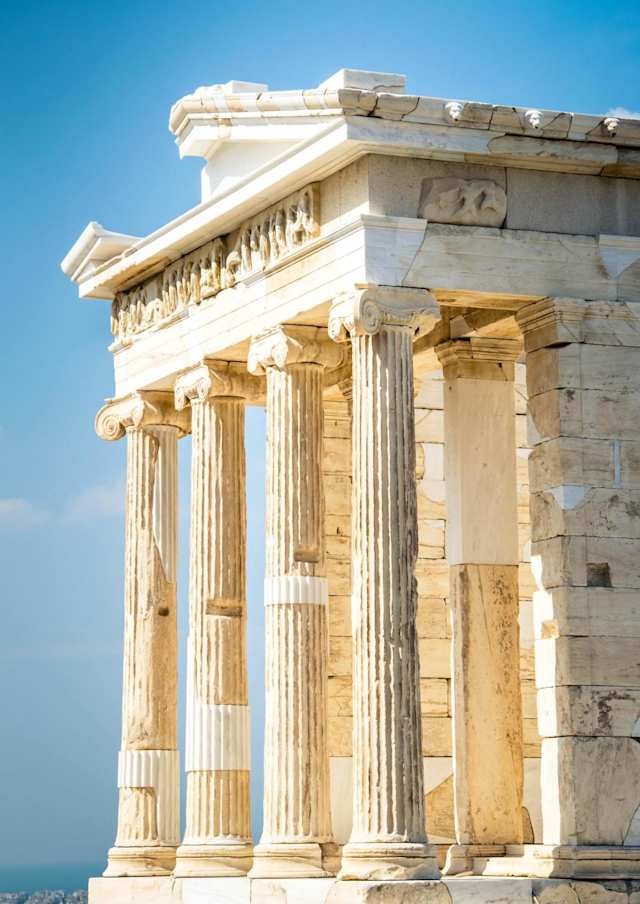
A side-on view of the beams at the front of the Parthenon at the Acropolis on a sunny day, Athens, Greece
It’s so obvious that you have to see the Acropolis and the Parthenon that it’s almost not worth mentioning, but it would be practically illegal to miss it off our Athens travel guide. On the off-chance that you need reminding, the Acropolis is a building that stands as a symbol to Greece’s rich history, and has been at various times a citadel, a mythical home to the Gods, a palace, and a religious centre. It’s best to see the Parthenon, a building dedicated to Athena Parthenos, the Goddess embodying the power and prestige of the city. First thing in the morning or around dusk when the crowds tend to thin out are highly recommendable visiting times. It’s worth booking a tailor-made tour, so you can get the full experience from someone who really knows what they’re talking about.
Where to eat

A classic Greek salad in a bowl with feta, olives, tomatoes, and more
Even if you’re not much of a foodie (basically impossible in this day and age, let’s be honest), you simply must see Athens Central market, or Varvakios Agora. This 19th-century public market is the best place in the city to sample local delicacies, and is a great spot to pick up gifts for anyone back home. If you can name a Greek food, odds are its sold here, with popular culprits being halloumi, feta, olives, and yogurt. If you arrive early (the market opens at 7am every day except Sunday), you might get lucky enough to watch the fish and produce being unloaded. Beware, though, that it can get crowded. But then, that just adds to the unbeatable experience of people-watching in another country.
The best beaches

The blue sea and white sand at Alimos Beach, Athens, Greece
Just because you’re spending your precious vacation time exploring a city doesn’t mean that you can’t have a few beach days - and no Athens travel guide would be complete without recommending some sandy strips. The closest beaches to the centre of the city are Alimos and Piraeus, both under 10 miles away. The water is clear and blue, the shoreline is comprised of gentle sand and pebbles, and there are plenty of places nearby to get excellent seafood (or any other delicious Greek dish you desire). You can even try your hand at some water sports, to really make the experience one to remember. Travel there by public transport - so no need to hire a car. If the prospect of a dip in the sea makes your toes curl with cold, why not head to Vouliagmeni Lake instead? The lake water is thermally heated, so it’s warm and toasty all year round.
Embrace the culture
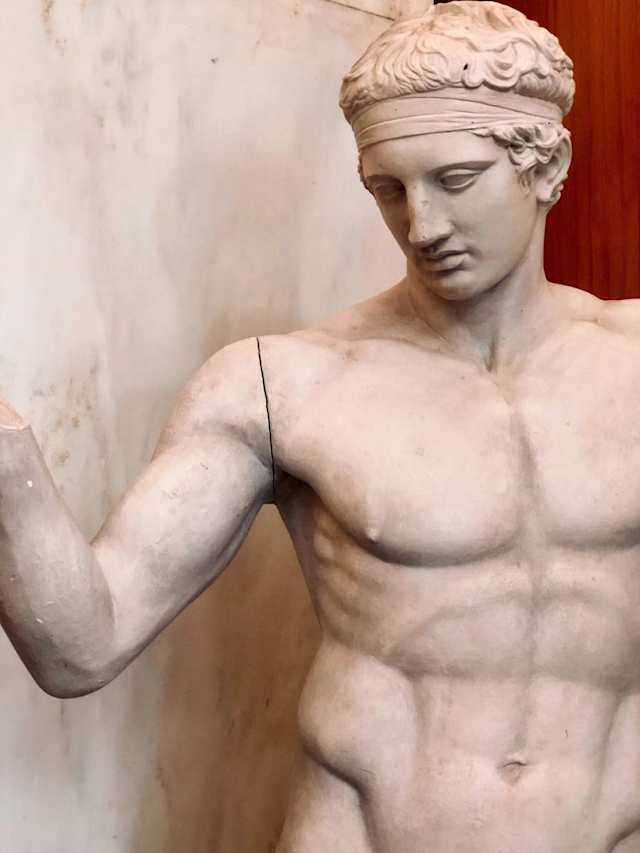
A sculpture of a man on display at the National Archeological Museum, Athens, Greece
Just walking down an Athens street is a lesson in culture, but for those who feel as though their holiday isn’t complete if they haven’t seen more than a few ancient artefacts, we’re ready help you out. Head to Vasilissis Sofias Avenue and simply go for a stroll. Within easy reach of this one street are more museums than you can shake a stick at. The Museum of Cycladic Art has breathtaking Bronze Age figurines and ceramics, as well as impressive contemporary pieces by artists such as Paul Chan and Ai Weiwei. The Byzantine and Christian Museum has a veritable treasure trove of ancient items, ranging from textiles to mosaics to sacred icons, with shady walled gardens to explore to boot. And the Benaki Museum has the most eclectic collection of them all - expect pieces ranging from 20th-century artworks to folk costumes.
Discover the nightlife
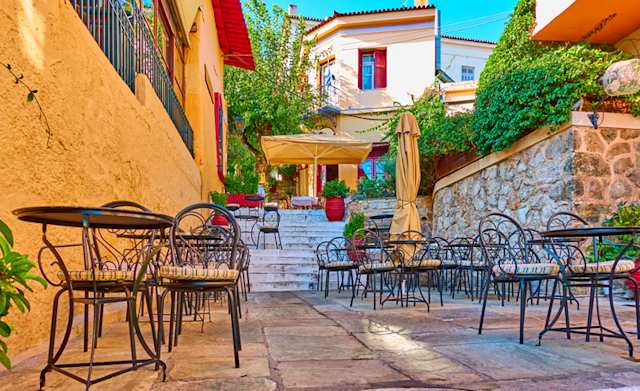
Empty chairs and tables outside a cafe in the evening, Athens, Greece
Athens may not have the nightlife reputation of places like Mykonos and Zante, but it can very much hold its own. To round off our this guide, we recommend heading to the foothills of Mount Lycabettus to Dexameni, ordering a glass of ouzo (or three) and enjoying the mood. The Athens crowd have been flocking here for over a century, so it will give you a true flavour of local life. There’s even an open-air cinema right next door (open until 3am in spring and summer), so that’s your evening itinerary sorted. Don’t forget to order a plate of the deliciously minty meatballs, either.









